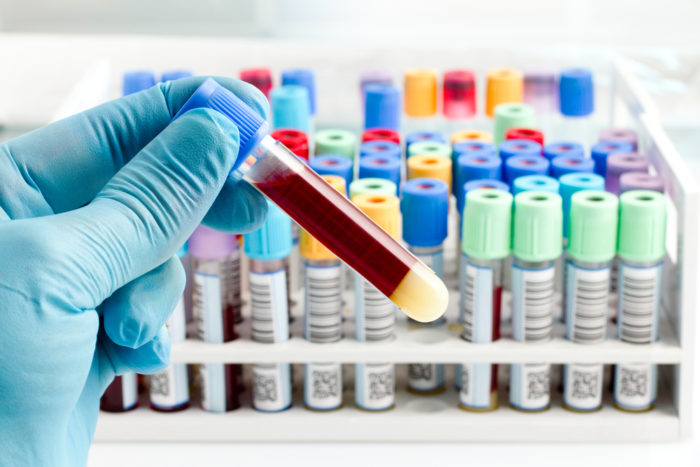Contents:
- Medical Video: What is hemoglobin A1c?
- The hemoglobin A1C test must be done every few months
- What is hemoglobin?
- Why does it have to be an A1C test?
- How often do I have to do this test?
- What results might you receive?
- Could the A1C test fail?
Medical Video: What is hemoglobin A1c?
In addition to regular blood sugar checks daily, your doctor may recommend that you who have diabetes have another diabetes test to monitor health conditions, one of them is the hemoglobin A1C test. What test is that?
The hemoglobin A1C test must be done every few months
Every 3 to 6 months, doctors will generally ask you to do a blood sugar test called hemoglobin A1C test, otherwise known as HbA1C, glycohemoglobin, glycosylated hemoglobin, or a glycated hemoglobin test.
This test is useful to show how well you have managed your blood sugar for 6-12 weeks before the test.
After that, you still check your blood sugar at home as usual. This hemoglobin test is undertaken to help show the doctor whether the diabetes care plan you have been doing is effective or what you need to reset your diabetes care.
What is hemoglobin?
Hemoglobin is a substance in red blood cells that carries oxygen throughout the body. If your diabetes condition is not well controlled, excess sugar will increase hemoglobin over time. Hemoglobin bound to blood sugar is called "glycated" hemoglobin.
A hemoglobin A1C test will measure how much glycated hemoglobin is in your blood. The more glycated hemoglobin in your blood, the more your diabetes is out of control in recent weeks and the more difficult it is for you to control. The higher the A1C level, the higher the risk of being affected diabetes complications.
Why does it have to be an A1C test?
Your doctor will use the hemoglobin A1C test to make a diagnosis of early diabetes, set a basic A1C level for the future, and use the results to monitor your diabetes and see how your treatment plan works.
For those who have been suffering from diabetes for several years, consider the hemoglobin A1C test as a test to maintain a maintained diabetes condition.
How often do I have to do this test?
This depends on the type of diabetes you have, your treatment plan, and how well you have managed to control your blood sugar levels beforehand.
- If you have type 1 diabetes, you may be testing more often, maybe four or more times a year.
- If you have type 2 diabetes, don't use insulin, and have a history of maintaining healthy blood sugar levels, your doctor can only ask to test your blood twice a year.
- Then, if you have type 2 diabetes, use insulin, and have difficulty keeping your blood sugar level within a healthy range, your doctor may ask for your hemoglobin test four or more times a year.
What results might you receive?
The purpose of doing this hemoglobin test is different for each person, it can be determined based on the patient's condition and doctor's advice. In general, the higher A1C, the greater the risk of experiencing complications related to diabetes.
- For people who don't have diabetes, the normal upper limit for HbA1c is 5.6%.
- If you take the hemoglobin A1C test to diagnose diabetes and two A1C test readings in excess of 6.5%, then there is an indication of diabetes.
- If the A1C test reading is between 5.7-6.4%, it indicates prediabetes. This means you are at risk of developing diabetes if you do not take steps to prevent it.
Could the A1C test fail?
The effectiveness of the hemoglobin A1C test may be limited to certain cases. Here are some of these cases:
- If you experience anemia or have low iron levels in your blood, your A1C test can show a high percentage that is not true.
- If you experience heavy or chronic bleeding (maybe from your menstrual cycle), you may have a very low hemoglobin amount. This will likely show the wrong results at a low level for your A1C test.
- If your hemoglobin has a variant, it means you have a form of hemoglobin that is rare, your A1C test results may be wrong. A hemoglobin variant can be confirmed by laboratory tests, but the next A1C test for you needs to be tested by a special laboratory equipped with equipment to test the special hemoglobin variant.















